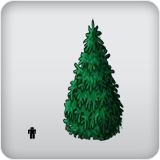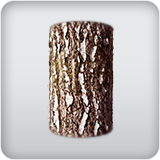Valentine's Day Terrarium Workshop
Register Now
Height: 40 feet
Spread: 40 feet
Sunlight:

Hardiness Zone: 6a
Description:
A rugged character tree, this pine is dashingly picturesque with an open, irregular habit of growth when mature; very tolerant of salt, makes a most distinguished accent tree if you're willing to wait for it to develop its character
Ornamental Features
Japanese Black Pine is primarily valued in the landscape for its ornamental globe-shaped form. It has dark green evergreen foliage. The needles remain dark green throughout the winter. The shaggy dark brown bark adds an interesting dimension to the landscape.
Landscape Attributes
Japanese Black Pine is a dense evergreen tree with a strong central leader and a more or less rounded form. Its average texture blends into the landscape, but can be balanced by one or two finer or coarser trees or shrubs for an effective composition.
This tree will require occasional maintenance and upkeep. When pruning is necessary, it is recommended to only trim back the new growth of the current season, other than to remove any dieback. Gardeners should be aware of the following characteristic(s) that may warrant special consideration;
- Disease
Japanese Black Pine is recommended for the following landscape applications;
- Accent
- Shade
- Windbreaks and Shelterbelts
Planting & Growing
Japanese Black Pine will grow to be about 40 feet tall at maturity, with a spread of 40 feet. It has a low canopy with a typical clearance of 3 feet from the ground, and should not be planted underneath power lines. It grows at a medium rate, and under ideal conditions can be expected to live for 80 years or more.
This tree should only be grown in full sunlight. It prefers dry to average moisture levels with very well-drained soil, and will often die in standing water. It may require supplemental watering during periods of drought or extended heat. It is not particular as to soil type or pH, and is able to handle environmental salt. It is highly tolerant of urban pollution and will even thrive in inner city environments. This species is not originally from North America.


 Characteristics
Characteristics


 Applications
Applications


 Features & Attributes
Features & Attributes